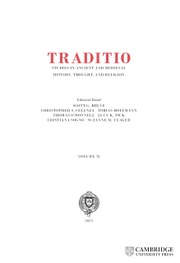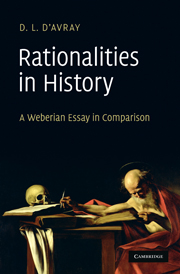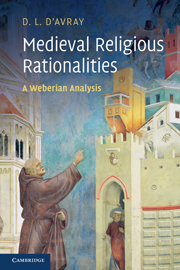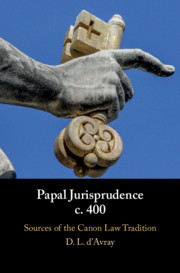Papacy, Monarchy and Marriage 860–1600
This analysis of royal marriage cases across seven centuries explains how and how far popes controlled royal entry into and exits from their marriages. In the period between c.860 and 1600, the personal lives of kings became the business of the papacy. d'Avray explores the rationale for papal involvement in royal marriages and uses them to analyse the structure of church-state relations. The marital problems of the Carolingian Lothar II, of English kings - John, Henry III, and Henry VIII - and other monarchs, especially Spanish and French, up to Henri IV of France and La Reine Margot, have their place in this exploration of how canon law came to constrain pragmatic political manoeuvring within a system increasingly rationalised from the mid-thirteenth century on. Using documents presented in the author's Dissolving Royal Marriages, the argument brings out hidden connections between legal formality, annulments, and dispensations, at the highest social level.
- Surveys the relationship between monarchy, papacy and marriage in the period between 860 and 1600
- Brings together unpublished, archival material on marriage cases and supporting analytical commentary
- Applies social theory to narrative history and links medieval and early modern history
Reviews & endorsements
'Scholars not interested in marriage specifically can also learn a great deal from this volume, because one of d'Avray's most important arguments concerns not the formation and de-formation of royal marriages but rather the nature of historical cause and effect. Taking from Quentin Skinner the lesson that 'we do not need to be sure about sincerity before we estimate the effects of principles on actions' … he demonstrates that a certain cynicism about papal motivations is not incompatible with taking seriously the legal and theological ideas and the rhetoric they used to justify their decisions. Legal formality in both the annulment and dispensation process served the papacy well.' Ruth Mazo Karras, The Catholic Historical Review
'Elegantly and tightly written. … likely to remain definitive for years to come.' Charles Donahue, Jr, The Journal of Ecclesiastical History
'Reveals clearly the structural and legalistic details of the give-and-take employed by the monarchies and high nobility, on the one hand, and by the papacy, on the other, during the Middle Ages … will be of interest to historians and anthropologists who are concerned with the sociology of the relationship between church and state during the Middle Ages and the early modern period in Western Europe.' Uta-Renate Blumenthal, The American Historical Review
'Medieval marriages have been subject to a huge amount of scholarship. … Therefore one could ask, is there really need and space for yet another monograph of this … topic or can someone still find something that has not already been said by others? I would be tempted to answer those questions negatively but the book written by Professor David d’Avray from University College London proves my answer wrong … This book … is a welcome resource for university teaching because it deals with the most famous medieval marriage troubles and especially because it offers English translations of numerous documents otherwise accessible only in Latin editions … It offers a lot of new thinking also for experts on medieval marriages, marriage legislation, or medieval papacy.' Kirsi Salonen, Speculum
Product details
March 2017Paperback
9781107660625
370 pages
229 × 152 × 20 mm
0.53kg
Available
Table of Contents
- Acknowledgements
- 1. Introduction
- 2. A Gallican forerunner
- 3. Concepts
- 4. Polygyny
- 5. Emotional persuasion in a public sphere: Nicholas I and Lothar
- 6. Canon law subverts itself
- 7. Due process
- 8. Biological kinship
- 9. Spiritual kinship
- 10. Impotence and magic
- 11. Pre-puberty marriage
- 12. Physical impotence
- 13. Adult non-consummation and pre-contract
- 14. Henry VIII's biblical bid
- 15. Reception of dispensation: plaisance and Henri IV
- 16. Diverging trends: annulments and dispensations
- 17. Annulments and dispensations: two theological rationalities
- 18. Dispensations and their diplomatic
- 19. Ten theses and an argument
- Documents
- Bibliography
- Index.

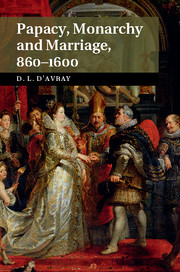
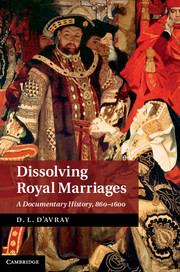
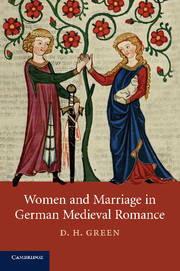



.jpg)
